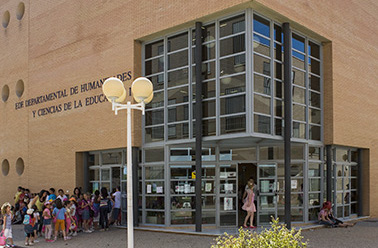Presentation
{{pre.error[0].message}}
Important:
The Bachelor's Degree in Electrical Engineering, with a mention in Renewable Energies, comprises studies with a notable multidisciplinary content, giving graduates the appropriate training to cover industrial problems from various fields of knowledge.
These professionals must be knowledgeable of the theoretical and practical aspects relating to Industrial Engineering, as well as the tools necessary to put this knowledge into practice.
This bachelor's degree aims to train professionals involved in designing and building electrical devices used in the generation, transfer and distribution of electrical energy, as well as the projection, realization and verification of electrical systems, especially those used in industry.
The activities most frequently carried out by these technical engineers focus on designing projects, the electrical and electronic control of machines and their components, the installation of any type of industrial electrical component in companies, the development of electrical and industrial structures and support for all types of manufacturing, working in research and development laboratories and in treatment plant laboratories. These people also work in technological development facilities, designing construction, production, maintenance and technical inspection projects.
 An important aspect of this degree is its approach to electricity production using renewable energy sources.
An important aspect of this degree is its approach to electricity production using renewable energy sources.
The renewable energy and energy-efficiency industry is evolving rapidly, amid growing concern regarding the depletion of fossil fuels and the unforeseen consequences of climate change.

Suggested profile for newly enrolled students
The general profile of the Bachelor's Degree in Electrical Engineering should be oriented towards the training of professionals with a multidisciplinary and global view of industrial issues, drawing from different areas of knowledge, and toward coordination tasks that are complementary to the work of specialists in the different areas.
General data
Branch of knowledge:
{{pre.presentacion[0].nom_rama}}
Duration of the program:
{{pre.presentacion[0].n_creditos}} Credits / {{pre.presentacion[0].n_duracion}} years
Type of education
{{pre.otros_datos[0].tip_ensenanza}}
Language(s) used
Field of study:
{{pre.presentacion[0].nomambito}}
ISCED:
{{pre.presentacion[0].c_campos_estudio}}
{{pre.presentacion[0].c_campo_estudio_2}}
Coordination
Telephone: {{coo.coordinador[0].tlfcoo | trim}}
E-mail: {{coo.coordinador[0].emailcoo}}
E-mail: {{c.cen_email}}








